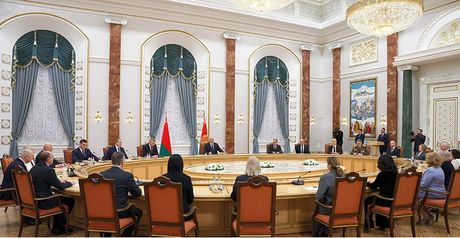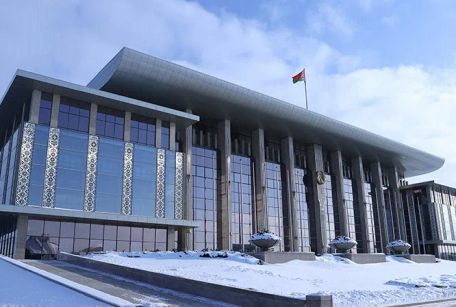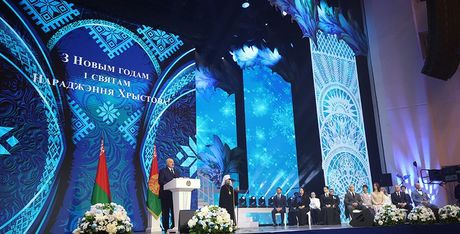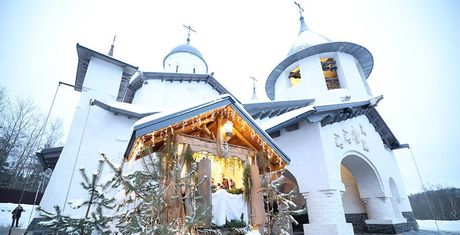Lukashenko met with Putin in the Kremlin
09:44, 30 September
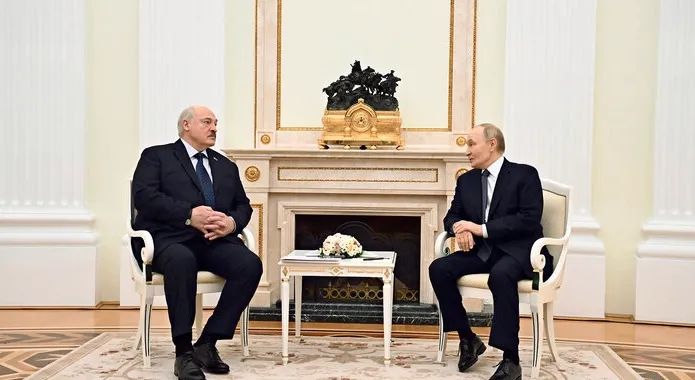
Photo: Press service of the Belarusian leader
On September 26, Belarusian President Alexander Lukashenko met with Russian President Vladimir Putin in the Kremlin, the Belarusian leader's press service reported.
- Share on Facebook
- Share on VK
- Share on Twitter
The meeting lasted nearly five and a half hours in total. The heads of state first met face-to-face in the Representative Office, then held a working breakfast, and then continued their conversation in the Russian President's office.
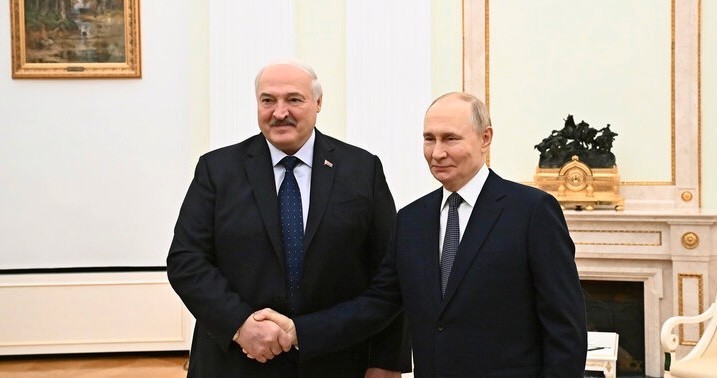
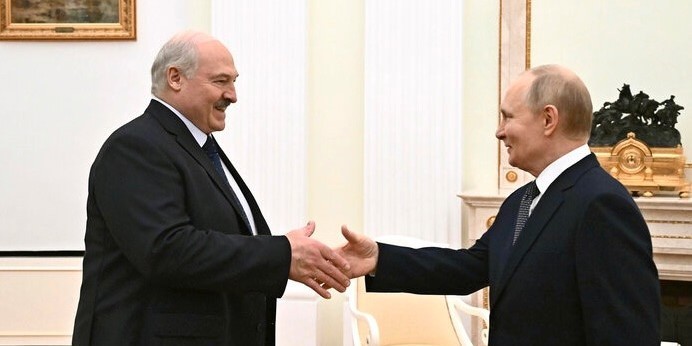
At the beginning of the meeting, Alexander Lukashenko noted that, although they say the presidents meet frequently, he feels like he hasn't met with the Russian leader in a long time. "A ton of issues have accumulated that we will discuss today. And we will make the appropriate decisions," the Belarusian President said.
"I already mentioned this yesterday; we will discuss it with you today. If you approve the expansion or construction of a new nuclear power plant. Perhaps even in eastern Belarus, if necessary, to provide electricity to areas liberated by Russia—Kherson, Zaporizhzhia, Luhansk, and Donetsk. If there is a specific need for this. In connection with the Zaporizhzhia power plant," Alexander Lukashenko said.
Rosatom has already developed options for further expansion of our nuclear energy sector. I don't want to publicly discuss finances. We have options, I will tell you about them. If a decision is made, we will immediately begin building a new power unit or a new station if there is a need in western Russia and in the liberated regions," the Belarusian head of state noted.
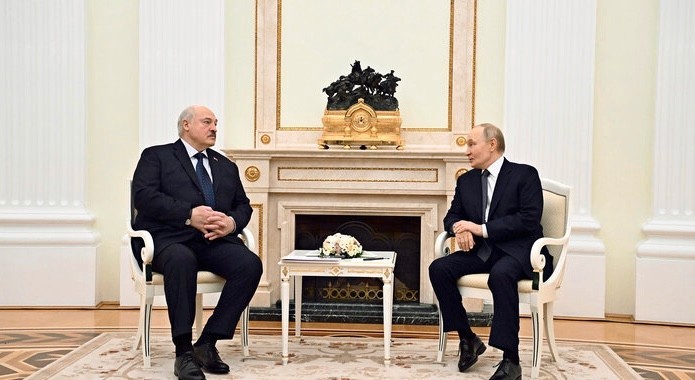
"Financing is not an issue at all. If there is a consumer who will take electricity and pay the required tariff, it's not a problem at all," Vladimir Putin emphasized.
"Yes. That's the most important thing," the Belarusian leader agreed.
Alexander Lukashenko, speaking about his participation in the Global Atomic Forum the day before, noted that during Soviet times, much was done together to develop the nuclear industry. "But even today, we haven't run away. And thanks to you, we built a nuclear power plant. Moreover, you fulfilled your promise – you taught us how to build nuclear power plants. Today, together with Rosatom, we are building nuclear power plants in other countries," the head of state said. "The only thing we haven't yet tackled (but we are ready to consider these issues if necessary) is welding the reactor, the vessel, or other necessary parts and components. There's no need for that yet. Rosatom does this at its Russian plants. And we have good builders; Russians are very happy with our builders; there are quite a few of them working."
The President emphasized that the jointly developed expertise will be used for the benefit of Belarus and Russia.
Alexander Lukashenko described how the Belarusian Nuclear Power Plant has impacted the country's development, despite initial concerns about excess electricity.
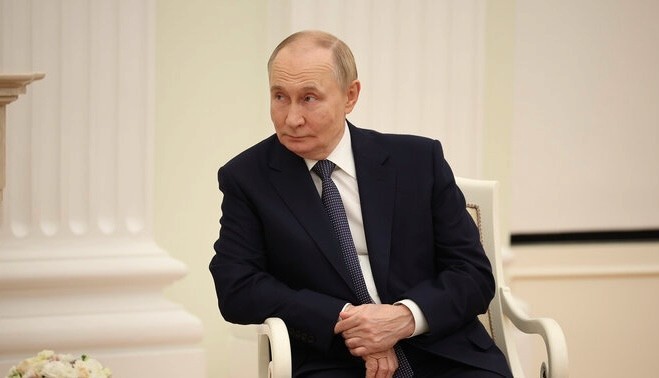
"I must tell you: we were worried too. We didn't have an energy shortage (before the construction of the Belarusian Nuclear Power Plant – Ed.). We were worried about what would happen after we built the plant," the Head of State noted.
However, the availability of additional electricity has led to the development of entire sectors, including the country's economy. Electric vehicles are becoming more common, and charging stations are being built. "The most important thing we've already experimented with is converting residential buildings to electricity (referring to heating and hot water – Ed.)," Alexander Lukashenko shared.
In this regard, Vladimir Putin noted that there is also an opportunity to more actively develop artificial intelligence and create data centers.
"We're keeping the stations that used to run on gas in cold mode (maintaining operation – Ed.). We actually set up those stations there – we're mining and so on. Foreigners are paying into the budget, and these stations are operating. Therefore, we're practically buying and will continue to buy the same volumes of gas from Gazprom. I think Gazprom won't lose out here. Natural gas is needed everywhere today," the Belarusian President said.
The head of state also proposed discussing a number of other issues: "There's no point in hiding it; I'd like to discuss a number of regional issues with you. You know what we have."
"There are a couple of issues that we usually have to resolve by the end of the year. Even just one issue. This is in bilateral relations," Alexander Lukashenko stated.
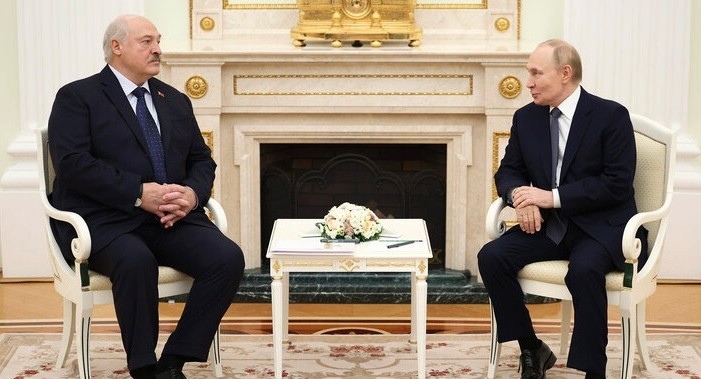
The Russian head of state first thanked his Belarusian counterpart for participating in the Global Atomic Forum, dedicated to the 80th anniversary of Russia's nuclear industry. "This is essentially our shared celebration. Firstly, because it marks the 80th anniversary of the formation of the nuclear industry in the USSR, and we were together during that time. Secondly, Belarus has now become our serious partner in the field of nuclear energy, as the first nuclear power plant was built in Belarus. Moreover, an industry has emerged in Belarus, whose specialists are now working with Rosatom on the construction of nuclear facilities in third countries. And this, of course, is very encouraging," Vladimir Putin said.
He noted that, according to Belarusian data, approximately 40% of the country's electricity is generated by the Belarusian Nuclear Power Plant. This results in significant savings on other energy resources, including natural gas. "They created a competitor for Gazprom, which simply supplied the primary energy source, and Belarus bought it. Now it's buying too, but, of course, its needs have decreased in this regard," the Russian President noted.
"Overall, our economic situation is very good. This is something amazing: our trade turnover exceeds $50 billion, and it continues to grow from such a large base (growth was observed in 2024 and continues, judging by data for the past period of 2025 – Ed.)," Vladimir Putin noted, adding that Russia is Belarus's leading trade and economic partner in terms of accumulated investment ($4.5 billion).
"In general, we are actively working in virtually all areas," the Russian President emphasized.
The same, he said, applies to issues of ensuring the security of the Union State. "Here, as we agreed, everything is proceeding smoothly, in working order. Everything is developing naturally."
"I want to thank you for such an attentive attitude toward all areas of our cooperation. I am very glad to see you," the Russian leader said, addressing the Belarusian President.
Following the meeting in the Kremlin, the Head of State told journalists about the issues he discussed with Vladimir Putin.
"We discussed both the international situation and the regional situation. Naturally, you know, our common problem and challenge is Ukraine. We talked about this a lot. And we concluded with bilateral relations, issues on oil and gas. We agreed on oil—we have serious agreements, no problems. We reached an agreement on gas. I think after this conversation, we'll finalize these issues. We'll practically work on a five-year plan. That was the question—not for one year, but for five years," the Head of State shared.
He noted that they also discussed the common market, including its protection: "What measures can we take to enable our producers to operate?"
"When we meet, there are a lot of issues," Alexander Lukashenko emphasized.
Responding to a question about the nuclear power plant, the President said that Belarus could build another unit using the funds saved from the loan for the Belarusian Nuclear Power Plant.
However, the final decision on where to build additional nuclear capacity has yet to be made. "Personally, I have some doubts about where to build it. Either a third unit at the current station in Ostrovets or to locate it in the east. Experts and the government are suggesting building the third unit nearby—it would be cheaper. On the other hand, when such a facility is built, it brings development to the entire region. Therefore, I have some doubts. We can build in either place. I think we will decide soon," the Head of State said.
Alexander Lukashenko said the presidents had given the necessary instructions to the governments of both countries. "They will sort this out, as the head of Rosatom told me yesterday, they will resolve these issues – the details. Barring insurmountable circumstances, we will build a third unit or a new nuclear power plant," the President stated.
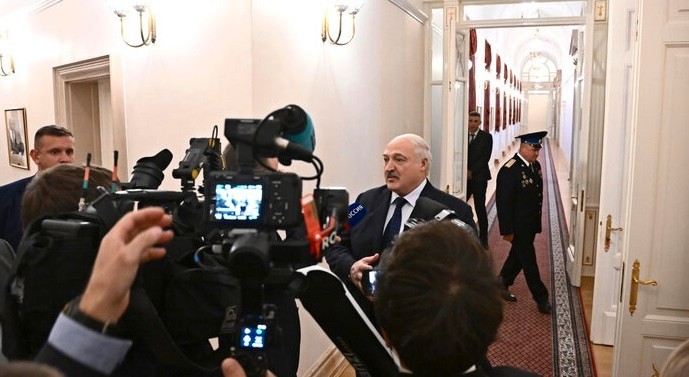
In an interview with journalists, Alexander Lukashenko spoke about the existence of good proposals for resolving the Ukrainian conflict and warned Volodymyr Zelenskyy against threatening to attack the Kremlin.
"You can talk and declare anything. But if the Kremlin strikes Bankova Street (the street in Kyiv where the Ukrainian government is located – Ed.), what will be left? Therefore, Vladimir Alexandrovich needs to calm down. There are good proposals on the table. President Putin and I discussed them. I won't talk about them; the President will speak for himself. They are good proposals. The proposals for Ukraine, which Donald Trump heard in Alaska, among other things, have been taken to Washington for consideration and discussion. They are very good proposals. If the Ukrainians don't accept these proposals, it will be like the beginning of the Cold War. It will be even worse. They will lose Ukraine," the Head of State said.
Alexander Lukashenko noted that they should have stopped initially, and then the entire east would have been Ukrainian, except for Crimea. "No, if they didn't stop, they lost the east. Now, if they don't stop (from my perspective – as someone deeply immersed in this situation), they will lose all of Ukraine," the President asserted.
The Belarusian head of state said his Russian counterpart was hiding nothing from him, and the two presidents heard a report from the General Staff of the Russian Armed Forces during their meeting, including via conference call. "Listen, on all fronts, and especially in some areas, the Russians have practically captured large population centers. And I look at it geographically: what next? And then it will be difficult to stop the Russian army," Alexander Lukashenko said.
"Therefore, in order not to lose all of Ukraine, Vladimir Aleksandrovich (Zelensky - Ed.) must not just negotiate, but agree to favorable terms (for conflict resolution - Ed.). These terms, in fact, were approved by the Americans. They took a break to think. The Russians agreed," the head of state said. "Therefore, I would like (while he meets with President Putin there - he wants to, he's making every effort to do so, and he's already done so publicly) to simply talk with him."
"And perhaps this is precisely the moment when this will be heard in Russia, from you: I have something to say to him (Zelensky – Ed.)," Alexander Lukashenko emphasized.
"I think the time has come for us to enter into consultations. At the beginning, the Council of Europe said: we, the leaders of the three Slavic states, need to sit down and reach an agreement. Agree on ending this incomprehensible war. We need to reach an agreement. If we don't reach an agreement, it will be bad for everyone," the Belarusian leader added.
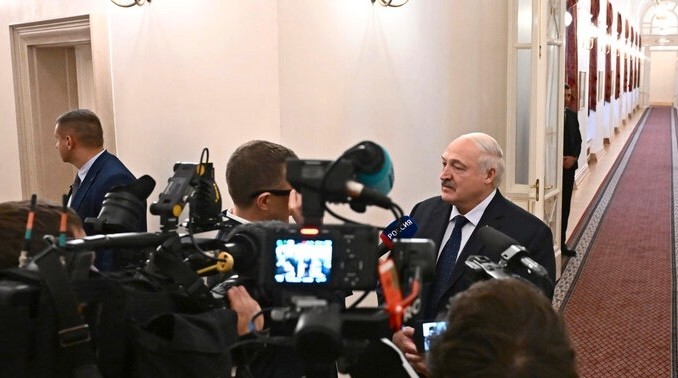
The head of state was asked whether US President Donald Trump's commitment to a settlement in Ukraine remains strong, given his constantly shifting rhetoric.
"Trump, I understand him, uses this tactic: press, retreat, retreat, press, and sometimes go all-out. He's a rebel. In the best sense of the word. I'm not much different from Trump in this regard, and I call myself a Trumpist. Vladimir Vladimirovich (Putin - Ed.) respects Trump very much, and he respects him no less than I do," said Alexander Lukashenko. "That's why we're sometimes ignoring him. We understand that Trump is in a difficult situation. You understand that perfectly well. Recently, one of his supporters (Charlie Kirk - Ed.), a very intelligent, smart, and ardent supporter, was shot. And he understands this signal. He's taken this signal and is responding accordingly."
"We need to understand what Trump is saying. We need to understand it comprehensively. And there's no need to pounce on him after just any statement. He's a 'paper tiger' (as Donald Trump figuratively called Russia – Ed.) or something. No need. I told my 'big brother' (Russian President Vladimir Putin – Ed.): 'Well done!' He's acting calmly and purposefully. Yes, he said something. Time will put everything in its place, and time is near," the Belarusian leader asserted.
Alexander Lukashenko noted that Donald Trump has taken a very good, respectable position: "He says he's ended seven wars and conflicts. Maybe seven, maybe six. But the main thing in foreign policy is 'Peace, Peace, Peace!'"



